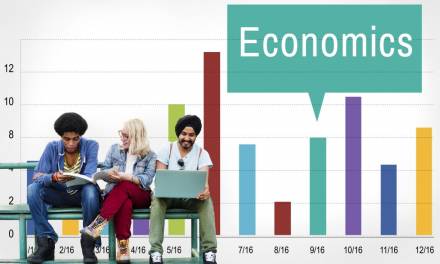Economics influences every aspect of the modern world. As such, students who have an interest in, and choose to study, economics have a variety of career paths to choose from.
The skills learned through economics are also highly transferable, allowing students to move into fields they wouldn’t initially have contemplated.
So, what kind of roles are available to those students who have a passion and a flair for economics?
Chartered Accountant
One of the most obvious roles that spring to mind when thinking about economics is that of an accountant.
These roles, certified and otherwise, involve working with financial statements, auditing, budget preparation, and a host of other tasks heavily reliant on economic acumen.
Entry to accountancy isn’t necessarily limited by degree background, although degrees are preferable to HND qualifications. There are several professional bodies offering chartered accountancy qualifications, although many students find the hardest aspect of pursuing this career involves securing a training contract with an approved employer.
ICAEW (The Institute of Chartered Accountants in England and Wales) and ICAS (Institute of Chartered Accountants of Scotland) both offer guidance and advice on how to become a chartered accountant.
Data Analyst
Economics students are often extremely competent with data, especially when mathematical skill is combined with an analytical and curious nature.
Data analysts work across a variety of sectors, including business, education, marketing, and sales, with specific tasks naturally related to the sector and individual employer.
Ideally, students should aim for a first degree in disciplines such as economics, business information systems, mathematics, or statistics. Postgraduate qualifications are sometimes useful for improving analysis skills.
The recruitment website totaljobs shows that the median salary for a data analyst in the UK is currently £32,000 and that this increased by an average of 12% in December 2017. As more and more companies use data to analyse their markets and customer behaviour, expect data analysts to be even more in demand in the future.
Economist
Becoming an economist can take in far more sectors and industries than you might expect.
For instance, specific roles can include analysing the economic benefit of sporting events, or analysing the scarcity of resources in businesses, organisations, or even nation states.
Joint degrees are welcome additions for economists, allowing specialisation in, for example, law, politics, or international economics. It’s important to note that degrees are vital for this work and post-graduate degrees are also desirable.
Prospects has a comprehensive economist job profile with details of responsibilities and expectations.
Actuary
The work of an actuary may not be widely understood, but, essentially, they evaluate, manage, and advise on financial risk.
Their work takes them across sectors, including banking, corporate finance, insurance, pensions, and investment management. An interest in data and an eye for detail is critical for success in this field.
Most actuaries will be employed by large financial institutions and the field is open to all those with strong numerical skills, along with an appropriate degree background. The Certificate in Financial Mathematics (CT1) is also a route into this career.
The Institute and Faculty of Actuaries (IFoA) offers guidance and advice for those wanting to follow a career as an actuary.
Civil Service
Specific economic roles within the civil service are accessible through fast-stream processes as well as other civil service roles which would benefit from the skills learned during the study of economics.
For example, a candidate will require awareness of commercial and financial models, along with confidence in decision-making, innovative thinking, and proactive project management.
Training utilising the fast stream processes often takes in a number of departments over four years, and jobs are predicated on a commitment to continuing professional development.
The Government Economic Service is part of the civil service and their role is to support economists in the civil service. You can also search civil service job listing for economists to see variety of opportunities available.
If you have any other suggestions for economics students that you would like to share with other readers, let us know in the comments below.









